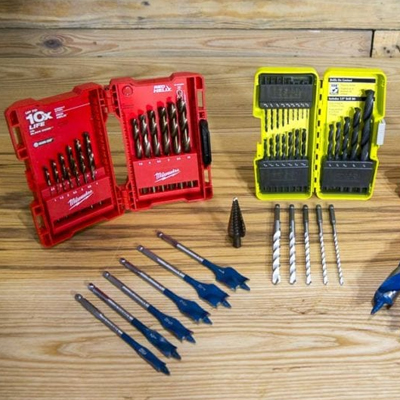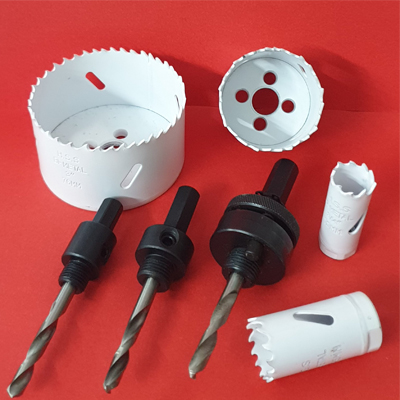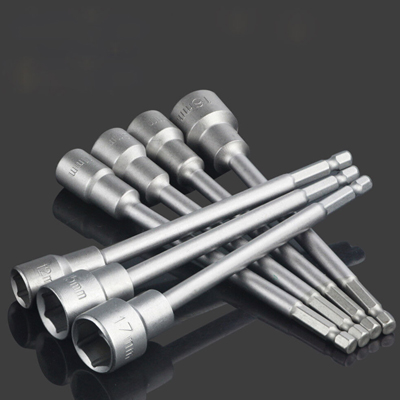Deal On Drilling Accessories
Deal on drilling accessories are essential tools and components designed to enhance the efficiency, precision, and safety of drilling operations across various industries, from construction and mining to woodworking and metalworking. These accessories encompass a wide range of equipment, each serving a specific purpose in the drilling process. One fundamental drilling accessory is the drill bit, available in diverse configurations tailored for different materials and applications. For instance, twist drill bits are commonly used for drilling into metal, while masonry bits are designed for concrete and stone. Additionally, wood bits are ideal for woodworking tasks, ensuring clean and accurate holes. When considering the purchase of drilling accessories, it's essential to prioritize quality, compatibility, and versatility to ensure that your drilling operations are efficient and effective. Start by assessing your specific needs and the type of drilling tasks you frequently encounter. Whether you require drill bits for metal, wood, or masonry, depth stops for precision, or specialized guides and jigs for accurate hole placement, identifying your requirements is the first step in making informed purchasing decisions.Types Of Drilling Accessories
Drill Bits:
Drill bits are the most fundamental drilling accessories. They come in various shapes and materials, including twist bits for general drilling, masonry bits for concrete and stone, and spade bits for larger holes in wood. Specialty bits like Forstner bits are used for creating clean, flat-bottomed holes, while step bits are ideal for drilling holes of varying diameters.Auger Bits:
Auger bits are designed for drilling large-diameter holes in wood. They feature a spiral shape with a central point for precise hole starting and deep flutes for efficient chip removal, making them suitable for tasks like rough carpentry and construction.Hole Saws:
Hole saws are accessories used for cutting large-diameter holes in various materials, including wood, metal, and plastic. They consist of a circular saw blade with sharp teeth and are often used for tasks like installing doorknobs, electrical outlets, or plumbing fixtures.Countersink Bits:
Countersink bits combine drilling and countersinking functions in one accessory. They create a conical depression around a drilled hole, allowing screws or fasteners to sit flush with the surface. This ensures a clean and professional finish in woodworking and metalworking projects.Reamers:
Reamers use to enlarge or refine existing holes with precision. They come in various types, such as hand reamers and machine reamers, and are commonly used in applications where hole size and accuracy are critical.Spade Handles:
Spade handles are additional handles that attach to the side of the drill's main handle. Providing extra stability and control during drilling. They are particularly useful for tasks requiring high torque or drilling through tough materials.Drill Extensions:
Drill extensions or extension rods are accessories that increase the reach of your drill. They allow you to access confined or hard-to-reach spaces, making them invaluable for tasks like plumbing and electrical work.Drilling Guides:
Drilling guides, also known as drill press attachments, help maintain perfect drilling angles and hole depth. They often use in woodworking and metalworking to ensure precise and repeatable results.Depth Stops:
Depth stops are accessories that enable precise control over drilling depth. They prevent over-drilling, ensuring holes are consistent in depth, which is essential in various applications, including cabinetry and furniture making.Drill Chuck Keys:
Drill chuck keys tools use to tighten and loosen the chuck on a drill. They come in various shapes to match different drill models and sizes. Ensuring a secure fit for drill bits and accessories.Dust Collection Attachments:
Dust collection attachments, including vacuum adapters and dust shields, help capture dust and debris generated during drilling, improving air quality and reducing cleanup efforts.Features Of Drilling Accessories
- Versatility: Many drilling accessories design to work with a variety of drill types and sizes. Making them versatile tools suitable for different tasks and materials.
- Precision: Accessories like depth stops and guides ensure precise drilling depths and hole placements, enhancing the accuracy of your work.
- Efficiency: Quality drill bits and extension rods can increase drilling speed and efficiency, reducing the time needed to complete tasks.
- Safety: Safety features such as dust collection systems, safety goggles, and ear protection accessories design to protect the operator from potential hazards during drilling operations.
- Compatibility: Accessories often engineer to be compatible with a wide range of drill brands and models, ensuring ease of use and a secure fit.
- Durability: High-quality accessories built to withstand the rigors of drilling and frequent use, providing long-lasting performance and value.
Benefits Of Drilling Accessories
- Improved Accuracy: Accessories like guides and jigs enable precise hole placement, reducing the likelihood of errors and the need for rework.
- Time Savings: Efficient accessories can speed up drilling tasks, increasing productivity and saving valuable time.
- Enhanced Safety: Safety accessories protect the operator from common drilling hazards, reducing the risk of injuries and health issues.
- Versatility: Versatile accessories expand the capabilities of your drilling equipment, allowing you to tackle a wider range of projects without the need for multiple specialized tools.
- Cleaner Work Environment: Dust collection systems and vacuum attachments help maintain a cleaner and safer workspace by capturing dust and debris. Improving air quality and reducing cleanup efforts.
- Extended Tool Lifespan: Proper maintenance with lubricants and cleaning brushes can prolong the lifespan of your drilling equipment. Reducing repair and replacement costs.
Safety Considerations Of Drilling Accessories
- Eye Protection: Safety goggles or face shields should be worn to protect your eyes from flying debris, especially when drilling materials like metal, wood, or masonry.
- Hearing Protection: Earmuffs or earplugs are essential when working with noisy drilling equipment to prevent hearing damage.
- Dust Control: Dust collection systems and masks should be use. When drilling materials that produce harmful dust to protect your respiratory health.
- Proper Technique: Ensure you are using the right accessories for the job and follow recommended drilling techniques to minimize the risk of accidents.
- Secure Fit: Accessories like extension rods and adapters should be securely attach to the drill to prevent accidents cause by loose components.
- Maintenance: Regularly maintain and inspect your accessories to ensure they are in good working condition. Reducing the risk of equipment failure during use.



